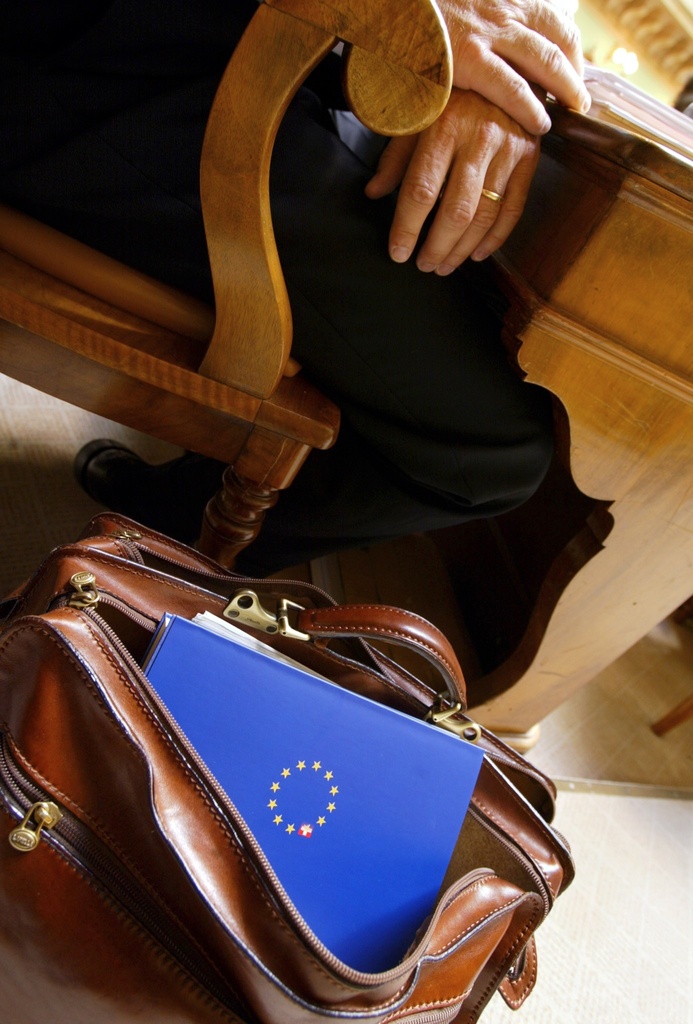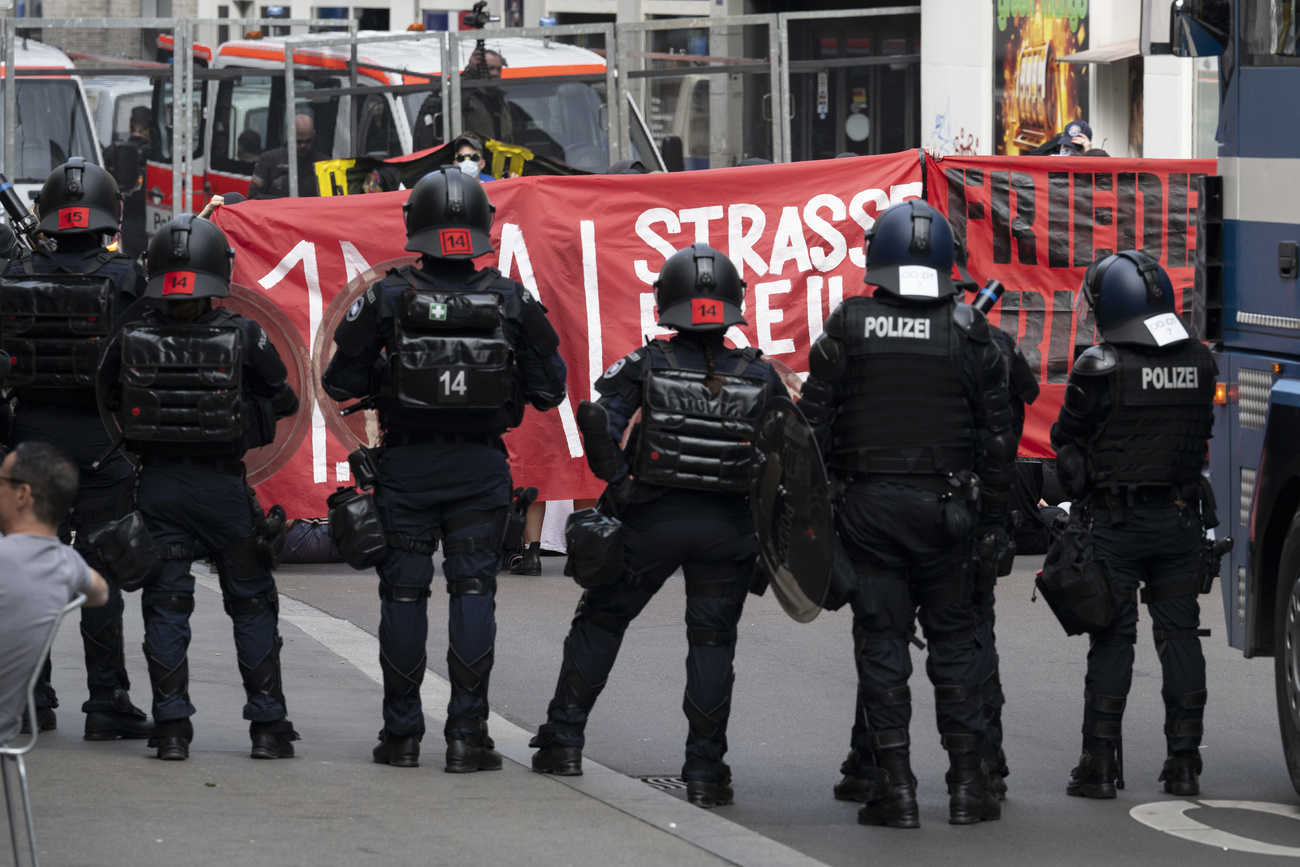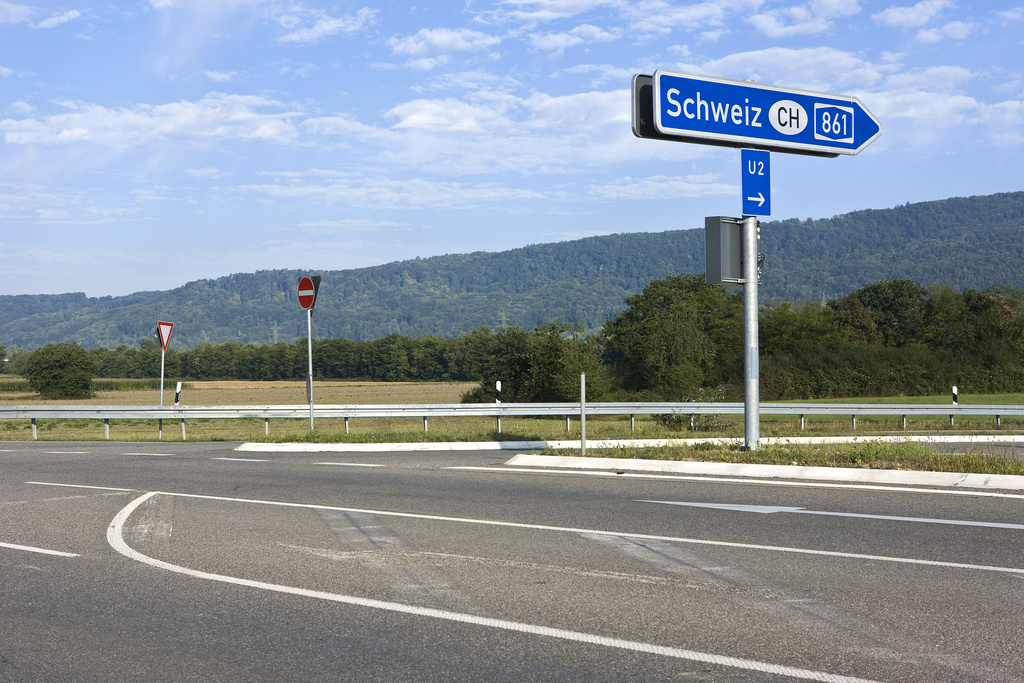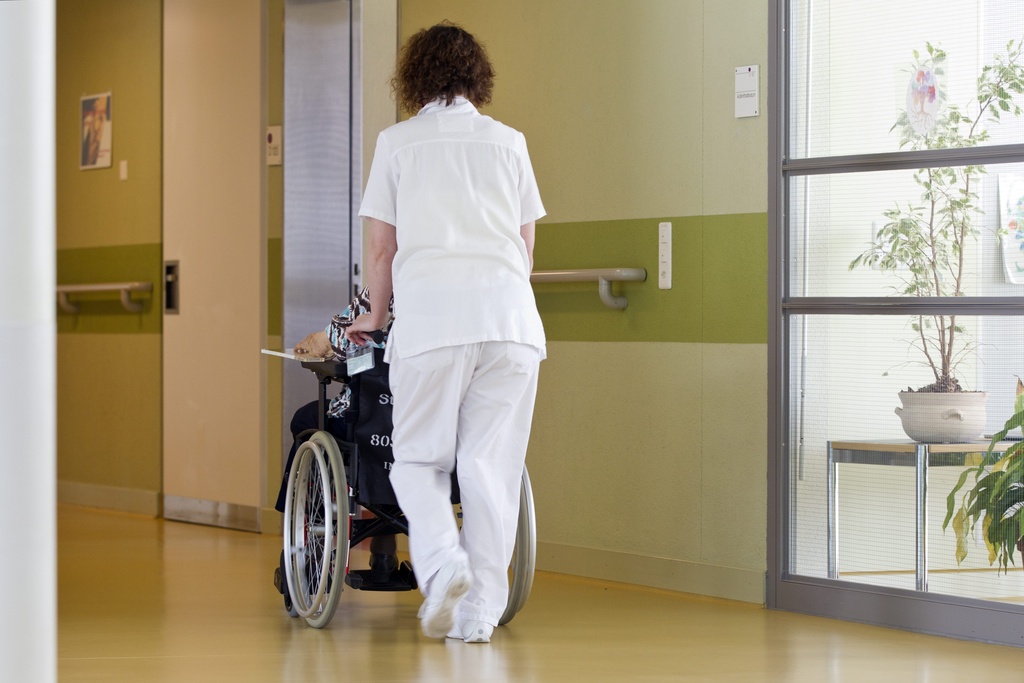Rightwing attack on EU policy fails

The House of Representatives wants the government to refocus its bilateral negotiations with the European Union, notably on agriculture and financial services.
But on Thursday it rejected calls by the rightwing Swiss People’s Party for limits on immigration and on imports from the EU as well as the formal withdrawal of Switzerland’s application for full membership in the 27-nation bloc.
The special debate on relations between Switzerland and the EU was launched by the People’s Party, which has made Europe a key issue of its campaign for October’s parliamentary elections.
It came amid increasing public concern about what is considered the negative impact of two major bilateral treaties between Brussels and Switzerland: an agreement on free access to each other’s labour market – known as the free movement of people accord – and membership in the European single border area (Schengen/Dublin treaty).
Both Foreign Minister Micheline Calmy-Rey and Economics Minister Johann Schneider-Ammann argued the benefits of the two controversial agreements outweighed the problems on the labour market and with housing.
But they agreed that improvements were possible.
Prosperity and benefits
“The Swiss economy depends on immigration from the EU and our prosperity is defined by a constructive partnership with the EU,” said Schneider-Ammann, who pledged to crack down on abuses of the labour treaty, notably companies undercutting agreed salary levels.
Calmy-Rey successfully fought off renewed demands for a withdrawal of Switzerland’s 1992 application for EU membership, saying the document no longer had legal value.
Following a similar debate in the Senate earlier this week, she reiterated the government was committed to its policy of bilateral treaties and was in no way seeking EU membership.
But given the increasing difficulties in adapting existing treaties and stalled negotiations on further accords, Calmy-Rey warned it would be wise “to let sleeping dogs lie” by leaving the application request shelved.
Both ministers firmly rejected allegations by People’s Party parliamentarians that the government was seeking EU membership through the back door or that it was giving in to pressure.
EU strategy
The cabinet is to discuss a strategy for future relations with the EU based on the findings of a group of experts, Calmy-Rey said.
“A coordinated and comprehensive approach is likely to be the most successful for Switzerland,” she said.
She reiterated that the government excludes taking over EU rules automatically, referring to demands by Brussels.
The EU indicated the system of bilateral treaties had become too complex to handle, making a framework and an arbitration court necessary.
Farmers
A majority of parliamentarians from the People’s Party but also from the centre-right Christian Democrats and Radicals agreed to call on government to suspend negotiations with the EU on opening up agricultural markets.
The talks underway since 2008 are stalled as concerns have increased that the competitive edge of Swiss farmers is being lost. Schneider-Ammann, who also holds the agriculture portfolio, argued in vain a free trade accord was an opportunity for farmers.
In another vote, the house called on the government to seek a deal with the EU on mutual access in the banking and insurance sector. It also backed calls by Green Party parliamentarian, Marlies Bänziger, for more transparent information on the bilateral accords.
There are negotiations pending with Brussels in seven other sectors, including electricity and procurement, but they are virtually stalled pending progress on the issue of an overall institutional solution.
The decisions by the house – a total of 50 separate proposals – still have to be discussed by the other parliamentary chamber, the Senate.
Buzek visit
The president of the European parliament, Jerzy Buzek, has rejected new negotiations on a labour accord and called for a framework accord containing all the 120 bilateral agreements with Switzerland.
During an official visit to Bern on Thursday, Buzek said this approach would be as good for the Swiss as it is Europeans, since they would also benefit from a single market and the free movement of people.
“I am convinced that the decision will come from Swiss citizens themselves, who are well aware of their interests,” he said, adding that he respected Swiss sovereignty.
Swiss voters in 1992 narrowly rejected the European Economic Area Treaty, a halfway house to EU membership.
The same year the government lodged an application for negotiations on full EU membership. The request has since been frozen.
Switzerland has concluded more than 120 bilateral treaties with the EU, including 20 major deals covering a wide range of issues.
Negotiations on eight other issues, including agriculture, electricity, satellite navigation and safety of chemicals, are currently stalled.
The rightwing People’s Party has accused the government of seeking EU membership and selling out Swiss autonomy and independence.
But the government says it is committed to the policy of bilateral treaties with the EU – Switzerland’s main trading partner.

In compliance with the JTI standards
More: SWI swissinfo.ch certified by the Journalism Trust Initiative













You can find an overview of ongoing debates with our journalists here . Please join us!
If you want to start a conversation about a topic raised in this article or want to report factual errors, email us at english@swissinfo.ch.